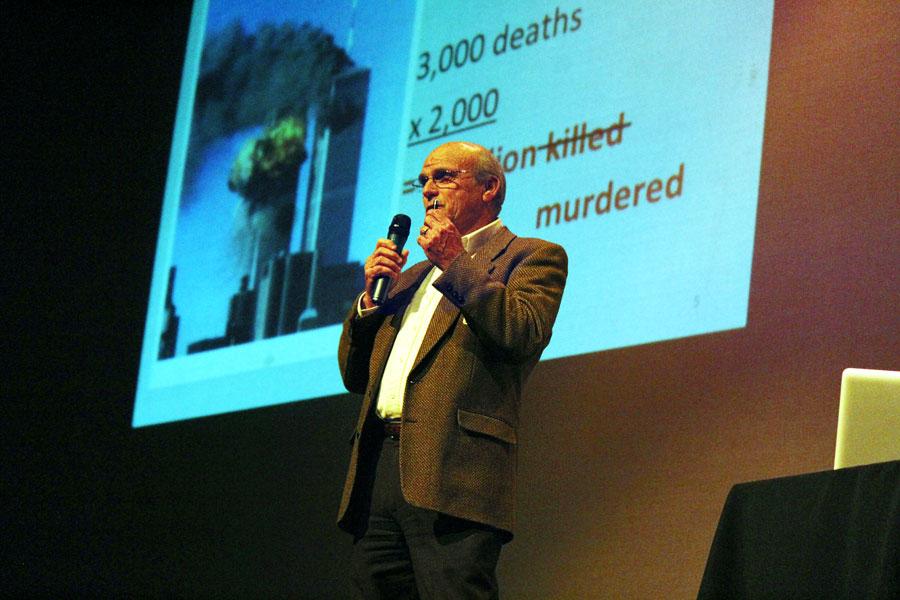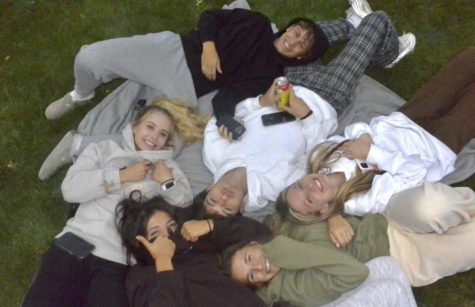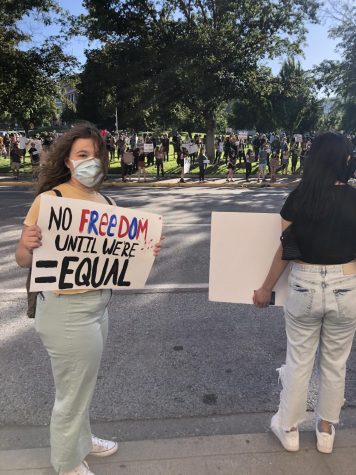Holocaust survivor shares experience with WHS juniors
Hiding in the floors of a house, bearing fake identification to attend school, dangling by the collar from the fist of a Nazi, for years Holocaust survivor Peter Metzelaar never thought much of sharing these events from his childhood.
“I wasn’t ashamed of it. I wasn’t embarrassed. I wasn’t hurt by it,” Metzelaar said. “It was almost like, you know with the exception of a few, doesn’t every kid go through an experience like that? Maybe not.”
His perspective changed in 1992, when Metzelaar returned to Europe for the first time after living in America for 50 years. By the spring of 1993, he had joined the Washington State Holocaust Education Resource Center (WSHERC) to share his story and message at events.
For the second year in a row, Wenatchee High School juniors got to get in on his message, a call for tolerance and independent thinking, through his presentation on April 8.
“I started to talk about [my story] to make people think, because it is not distant,” Metzelaar said. “You may not go through the same thing with the Nazis and the Germans, but all over the world it’s still happening…it’s just a matter of making people a little bit aware.”
Only a child at the start of World War ll, Metzelaar wasn’t fully aware about what was going on with his Jewish people within his home country, Holland. But when his father, grandparents and other relatives were arrested by the Nazis in 1942, he, 7 years-old at the time, and his mother escaped to hiding through the help of the Dutch Underground.
“Every country in Europe that Hitler occupied, a very honorable group of people, individual citizens, said ‘Something is wrong here’…and they fought and individually operated a resistance force,” Metzelaar said.
For the next three years and at three hiding locations, his days were made of hiding during daylight and attending school under a different last name. At one location he recalls being treated kindly and at another he was almost turned in. Other close calls included traveling with Nazis by car to Amsterdam, and a Nazi putting a gun to his head.
“I knew I was being hunted, someone was out to murder me,” Metzelaar said. “My biggest fear was ‘Is this when they are going to get me?’ “
Yet, they never did catch him. On May 8, 1945 Canada liberated Holland, and in four years, Metzelaar was living in New York City with his mom. He later moved west and today is one of WSHERC’s most popular speakers.
Social studies teacher Adam MacDonald coordinated this and last year’s presentation after being told about WSHERC at a conference last year. Only juniors attended because they are studying the Holocaust in U.S. History.
“Such an opportunity brings history alive and helps students to realize that, when we talk of people who died or were on the run, these were actual living, breathing human beings with lives every bit as rich, complicated, and precious as our own,” MacDonald said. “It helps remove the idea of this being a meaningless statistic and helps open students eyes that these are people we are talking about.”
For junior Marisol Palma, the presentation offered a fresh perspective. “I thought it was a new view of the Holocaust,” Palma said. “Instead of just being about violent weapons, bullying was more of a weapon.”
During his presentation, Metzelaar defined weapons of mass destruction as “bullying, narrow-mindedness and ignorance.” He discussed politics and propaganda, and how they are used to move a nation.
“Use the mind, don’t go along just because Uncle Charlie said these people are bad,” Metzelaar said. “Research it. Look it up yourself. Become somewhat intellectual from the standpoint to make the opinion that you want.”




